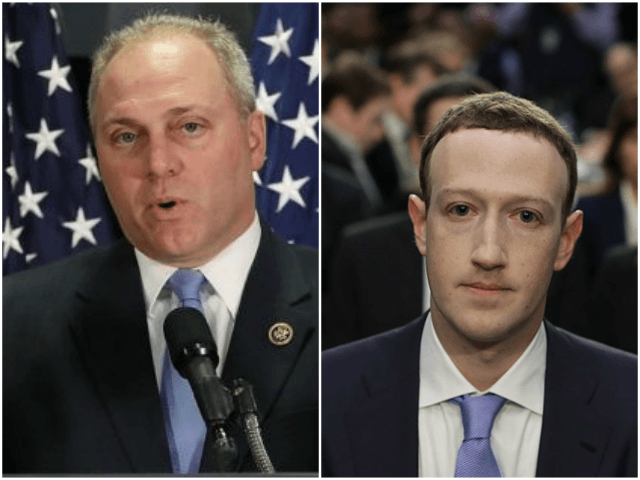Reps. Steve Scalise (R-LA) and Cathy McMorris Rodgers (R-WA) urged social media giants to acknowledge their political biases in an op-ed for USA Today this week.
A new op-ed from Representatives Steve Scalise of Louisiana and Cathy McMorris Rodgers of Washington argues that social media companies like Google, Facebook, and Twitter should acknowledge their political biases. Scalise and Rodgers referenced an exclusive Breitbart News video which showed Google executives complaining about the outcome of the 2016 election. Scalise and Rodgers urge the companies to directly acknowledge their political biases and explain how those biases might affect their products.
Add Google to the list of tech companies who owe the American people answers. A leaked video of Google executives surfaced recently that depicts them lamenting the 2016 election outcome. Google co-founder Sergey Brin told employees that he found the election “deeply offensive.” It is clear that left-leaning political bias exists among senior employees at Google. The question remains: How do their personal biases affect their products and choices?
The House Energy and Commerce Committee held hearings with Twitter CEO Jack Dorsey and Facebook CEO Mark Zuckerberg this year to have a transparent discussion about fair and free platforms for the battle of ideas. As members of the committee, we asked questions that Americans are concerned about regarding content bias, harassment, hate speech allegations and personal data privacy.

COMMENTS
Please let us know if you're having issues with commenting.